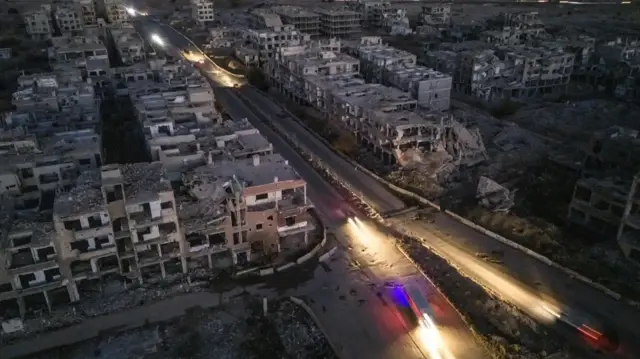World Bank estimates Syria reconstruction costs at minimum $216 billion

The World Bank has projected that Syria's post-conflict reconstruction will require between $140 billion and $345 billion, with a baseline estimate of $216 billion. The assessment reveals infrastructure suffered the most severe damage at $52 billion during the thirteen-year civil war that devastated the country's economy.
The World Bank has released a comprehensive assessment indicating Syria's reconstruction will require massive financial resources ranging from $140 billion to $345 billion following its devastating civil war. The development institution's conservative baseline estimate of $216 billion reflects the extensive physical destruction across the country's infrastructure and building stock during the thirteen-year conflict.
Damage Assessment and Infrastructure Impact
According to the World Bank's "The Syrian Conflict: Physical Damage and Reconstruction Assessment" covering 2011-2024, the war caused $108 billion in physical damage to structures and infrastructure, representing one-third of the nation's gross capital stock. Infrastructure sustained the most severe damage at $52 billion (48% of total), followed by residential buildings at $33 billion and non-residential structures at $23 billion, with Aleppo, Rif Dimashq, and Homs governorates experiencing the most extensive destruction.
Economic Contraction and Fiscal Challenges
The report contextualizes the reconstruction costs within Syria's severe economic decline, noting a 53% GDP contraction between 2010 and 2022. The country's nominal GDP plummeted from an anticipated $67.5 billion in 2011 to just $21.4 billion in 2024, making reconstruction costs approximately ten times current economic output. Economic sanctions and conflict disruptions have created import dependency, depleted foreign reserves, and constrained fiscal resources, with 2024 capital expenditures at merely 11% of their 2010 level.
Political Transition and International Response
Syrian Finance Minister Yisr Barnieh acknowledged the report provides a crucial baseline for understanding the reconstruction challenge, emphasizing the imperative for international community support to restore essential infrastructure and revitalize communities. The assessment follows Syria's political transition after former leader Bashar al-Assad fled to Russia last December, ending the Baath Party regime that had governed since 1963 and establishing a new administration under President Ahmed Al-Sharaa that has pursued economic reforms and international cooperation.
Reklam yükleniyor...
Reklam yükleniyor...







Comments you share on our site are a valuable resource for other users. Please be respectful of different opinions and other users. Avoid using rude, aggressive, derogatory, or discriminatory language.